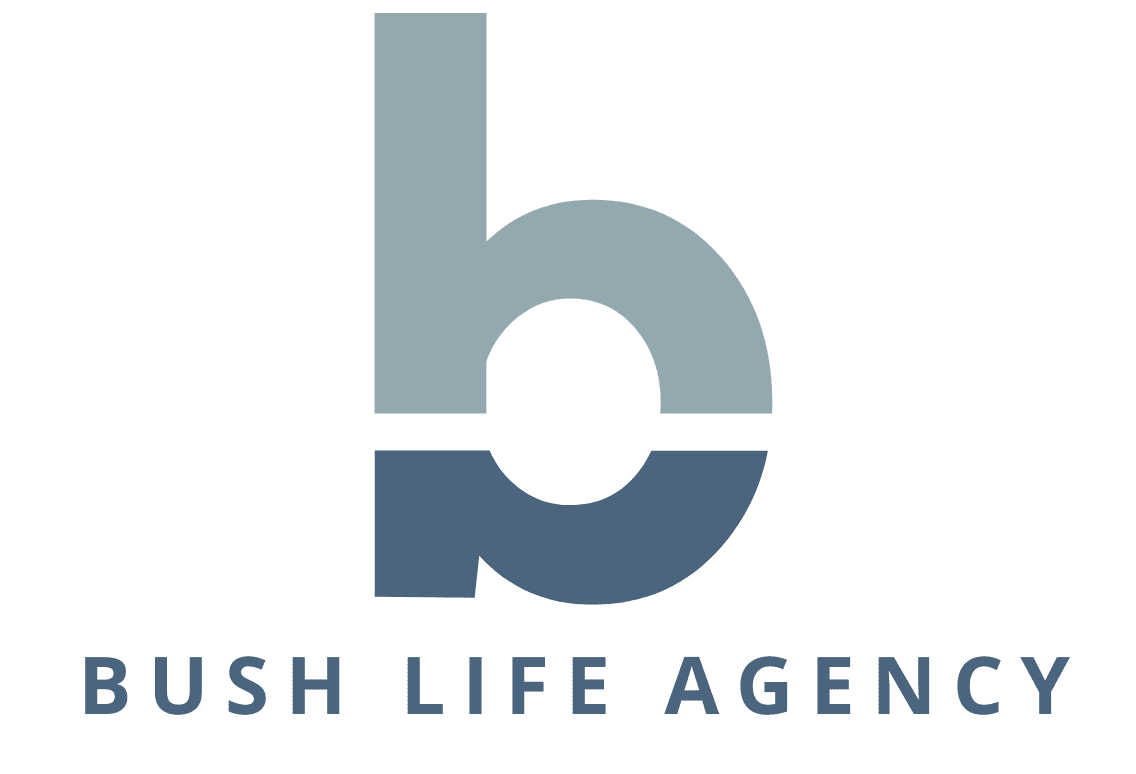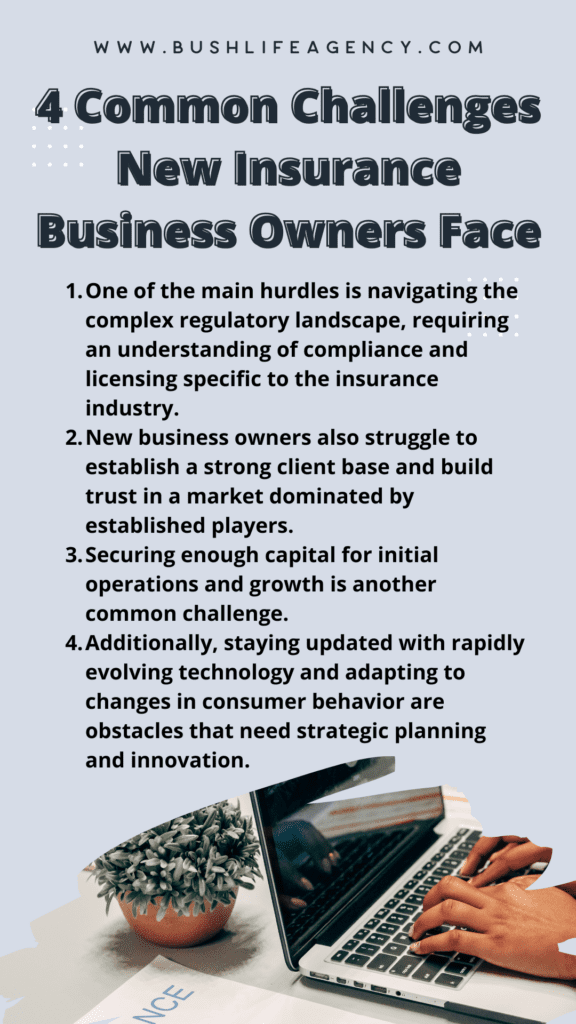Starting an insurance business significantly impacts the global economy by offering essential protection and financial security for individuals and businesses. By mitigating risks and providing compensation for unforeseen events, these businesses stabilize economies and enable growth. They instill a sense of security, empowering individuals to engage in various activities with confidence.
However, entrepreneurs venturing into this field often face challenges. In this blog, we explore the 5 common hurdles when starting an insurance business and uncover how overcoming them can lead to innovative services and solutions, contributing to economic resilience and societal well-being.
Table of Contents
The Rewarding Nature of Owning an Insurance Business
Owning an independent insurance agency presents numerous rewarding opportunities beyond financial gain. As an insurance entrepreneur, you play a vital role in protecting clients’ assets and ensuring their financial stability during life’s uncertainties. The gratitude and trust clients place in your services offer a profound sense of fulfillment. Additionally, the insurance industry encourages continuous learning and professional development, allowing you to stay abreast of new trends, regulatory changes, and innovative products.
Building a successful insurance business also provides an opportunity for creating jobs and contributing to local economies, reinforcing your role not only as a business leader but also as a community supporter. The satisfaction derived from making a positive impact on individuals’ lives and society at large underscores the deeply rewarding nature of owning an insurance business.
How To Succeed As An Insurance Broker
4 Common Challenges New Insurance Business Owners Face
Starting an insurance business, despite its numerous rewards, is fraught with distinctive challenges that aspiring entrepreneurs must be prepared to tackle.
- One of the primary hurdles is navigating the extensive regulatory landscape which requires a thorough understanding of compliance requirements and licensing procedures specific to the insurance industry.
- Additionally, new business owners often struggle with establishing a strong client base and building trust in a competitive market dominated by well-established players.
- Identifying and obtaining sufficient capital to support initial operations and growth is another significant hurdle frequently encountered.
- Moreover, keeping abreast of rapidly evolving technology and adapting to changes in consumer behavior pose significant obstacles that require strategic planning and innovation.
Addressing these common challenges effectively is crucial for the successful launch and sustainable operation of an insurance business.
1. Understanding Regulatory Requirements
Importance of Compliance in the Insurance Industry
Compliance in the insurance industry is of paramount importance, serving as a cornerstone for maintaining trust and ensuring the integrity of the sector. Given that insurance companies manage substantial amounts of sensitive client information and significant financial transactions, adhering to regulatory requirements protects consumers from fraud and ensures fair practices.
Compliance with laws and regulations, including those related to licensing, solvency, and consumer protection, minimizes legal risks and potential fines for businesses. This not only helps to safeguard the company’s reputation but also enhances its credibility with clients.
Moreover, maintaining compliance fosters a transparent operational environment which is crucial for nurturing long-term client relationships and sustaining business growth. In a highly regulated industry like insurance, compliance is not just a legal obligation but a strategic asset that supports ethical conduct and fortifies corporate resilience.
5 Steps to Understanding and Meeting Local, State, and Federal Regulations
- Research and Identify Applicable Regulations: Begin by thoroughly researching the local, state, and federal regulations relevant to your insurance business. This includes understanding the specific licensing requirements and compliance mandates that must be met. Utilize state insurance department resources and consult legal experts to gain a comprehensive view of the regulations that apply to your operations.
- Obtain Necessary Licenses and Permits: Once you have identified the necessary regulations, secure the appropriate licenses and permits. This may involve passing exams or fulfilling educational prerequisites specific to your location and the type of insurance products you intend to handle. Adhering to licensing requirements is crucial for legally operating your business.
- Implement Compliance Policies and Procedures: Develop and implement internal compliance policies and procedures to ensure ongoing adherence to regulations. This includes establishing protocols for managing client data securely, ensuring financial transactions are executed ethically, and maintaining accurate records. Regular training for staff on compliance obligations is essential to minimize risks.
- Stay Updated on Regulatory Changes: The regulatory landscape is continuously evolving, so keeping abreast of legislative updates is vital. Subscribe to industry newsletters, participate in relevant associations, and attend conferences to remain informed about changes that could impact your business.
- Conduct Regular Compliance Audits: Periodically review your business processes through compliance audits. Engaging third-party professionals to assess your adherence to regulations can provide objective insights and help identify potential areas for improvement, ensuring you sustain compliance over time.
By systematically addressing these steps, insurance entrepreneurs can effectively navigate the complexity of regulatory requirements, thus building a solid foundation for their business’s lawful and prosperous operation.
2. Building a Client Base
Strategies for Identifying and Reaching Target Markets
Successfully identifying and reaching target markets is essential for building a strong client base in the insurance industry. To achieve this, start by analyzing demographic data to understand potential clients’ age, location, occupation, and income levels. This information helps tailor services and marketing efforts to match the needs and preferences of specific groups.
Leveraging digital marketing tools such as social media, search engine optimization, and targeted advertising can effectively reach these audiences. Establishing partnerships with local businesses and participating in community events also enhances visibility and trust within the target market.
Conducting Market Research
Conducting thorough market research is fundamental to understanding the competitive landscape and identifying opportunities for differentiation. Begin with primary research by gathering feedback directly from potential clients through surveys, interviews, and focus groups.
Complement this with secondary research by analyzing industry reports, competitor offerings, and market trends. Use the insights gained to identify gaps in the market that your business can fill. Market research not only aids in recognizing target client needs but also informs strategic decisions for product and service development.
Creating a Unique Value Proposition
Creating a unique value proposition (UVP) is critical for distinguishing your insurance business in a competitive market. A compelling UVP highlights the unique benefits and services your company offers that competitors do not. To craft an effective UVP, focus on how your products solve customer problems or improve their quality of life. Incorporate aspects such as exceptional customer service, customized insurance solutions, or innovative technology in your UVP.
Communicate this message consistently across all marketing channels to reinforce your brand identity and attract your target market. A strong UVP resonates with potential clients and lays the groundwork for lasting customer relationships.
Networking and Relationship Building
Building robust networks and relationships is vital for success in the insurance industry. Networking facilitates mutual knowledge sharing and provides opportunities for collaborations that can expand business reach.
Attend industry events, join professional associations, and engage with peers to strengthen your industry presence. Establishing a broad network not only increases your potential client base but also offers access to resources and insights that can drive business innovation.
Importance of Community Involvement and Partnerships
Active community involvement and partnerships are key to cultivating trust and reputation. Engaging in community events, supporting local causes, and forming strategic partnerships with local organizations enhance your business’s visibility and foster goodwill.
Community involvement demonstrates commitment beyond business, showing clients that you are invested in their well-being. This approach positions your business as a responsible and credible member of the community.
Leveraging Social Media and Online Platforms
In the digital age, utilizing social media and online platforms is indispensable for reaching a wider audience. Develop a strong online presence by sharing valuable content, engaging with followers, and participating in online discussions relevant to your industry.
Platforms such as LinkedIn, Facebook, and Instagram offer unique opportunities to connect with diverse audiences, showcase expertise, and build relationships with both potential and current clients. Regular engagement on these platforms enhances brand recognition and fosters a sense of community around your business.
Developing Trust and Credibility with Potential Clients
Trust and credibility are foundational to building lasting client relationships in the insurance sector. Transparent communication, consistent follow-up, and delivering on promises are essential for establishing credibility. Provide clear, concise information on insurance products and processes, and be readily available to address client concerns.
Client testimonials, case studies, and reviews can also reinforce trust by validating your service quality and reliability. By prioritizing trust, your business builds a loyal client base and secures a competitive edge in the marketplace.
9 Effective Methods for a Life Insurance Agent to Generate Leads
3. Managing Finances
Effective financial management is crucial for the sustainable growth of any insurance business. Creating a solid business plan and budget is the first step in managing finances effectively. A comprehensive business plan outlines your company’s objectives, target market, competitive analysis, and revenue projections, serving as a roadmap for decision-making and strategic planning. A well-structured budget tracks anticipated expenses and income, enabling you to allocate resources efficiently and identify areas for cost savings.
Understanding startup costs and potential funding sources is critical for launching and maintaining your insurance business.
Startup costs typically include licensing fees, office expenses, marketing, technology infrastructure, and initial staffing. Identifying these costs helps in creating an accurate financial outlook and prevents unforeseen financial challenges.
For funding, consider various options such as personal savings, loans, investor capital, or government grants tailored for small businesses. Leveraging a mix of funding sources can provide the financial stability needed to start and grow your business while minimizing risks.
4. Leveraging Technology
The Role of Technology in Modern Insurance Businesses
In today’s fast-paced digital landscape, technology plays a pivotal role in transforming insurance businesses, offering new opportunities for growth and innovation. The integration of advanced technologies enables insurance companies to enhance efficiency, improve customer experiences, and remain competitive in a rapidly evolving market.
Technologies such as artificial intelligence (AI), big data analytics, and cloud computing are revolutionizing various aspects of the insurance sector, from risk assessment to claims processing. Embracing these technological advancements allows businesses to streamline operations, reduce costs, and uncover valuable insights that drive strategic decision-making.
Using Digital Marketing Tools to Enhance Visibility
Digital marketing tools are indispensable for boosting visibility and establishing a robust online presence in the insurance sector. By effectively utilizing these tools, businesses can reach broader audiences and engage potential clients more efficiently.
SEO, Content Marketing, and Email Campaigns
Search Engine Optimization (SEO) is a fundamental strategy for improving your website’s ranking on search engines, thus increasing visibility. Implementing well-researched keywords, optimizing site structure, and enhancing page load speed are critical aspects of SEO that drive organic traffic.
Content marketing, on the other hand, focuses on creating valuable and informative content that resonates with your target audience. Sharing insightful blog posts, engaging videos, and educational infographics not only positions your business as an industry thought leader but also builds trust with your clients.
Email campaigns provide a direct line of communication with clients, enhancing engagement and promoting offers tailored to their needs. Customizing email content to reflect client preferences and behaviors increases open rates and conversions. Regular newsletters can keep your audience informed about industry trends, new products, and exclusive insights, thereby nurturing long-term relationships.
Engaging with Clients through Virtual Consultations and Support
Incorporating virtual consultations and support into your service offerings can significantly enhance client engagement and satisfaction. Virtual consultations provide clients with the convenience of receiving personalized advice without the need for physical appointments. Through video conferencing tools, clients can connect with your team for in-depth discussions and advice on selecting the best insurance products.
Additionally, offering robust virtual support, such as live chat and comprehensive FAQs on your website, ensures clients have immediate access to assistance and information. This level of accessibility not only boosts client confidence and satisfaction but also demonstrates your commitment to providing exceptional service in a digital-first world. By embracing digital tools for client interaction, you create a more agile and responsive business model that meets modern consumer expectations.
5. Overcoming Initial Setbacks
Expecting and Managing Early-Stage Challenges
Navigating the early stages of establishing an insurance business involves encountering various challenges that are essential to acknowledge and prepare for. Such challenges may include managing limited resources, meeting regulatory requirements, and establishing brand credibility in a competitive market.
Being vigilant and proactive in identifying potential hurdles allows entrepreneurs to formulate strategies to mitigate their impact effectively. This proactive approach not only safeguards the business against unforeseen disruptions but also sets the foundation for sustainable growth and long-term success.
Importance of Resilience and Adaptability
Resilience and adaptability are critical attributes for overcoming early-stage challenges and driving a thriving insurance business. Resilience empowers entrepreneurs to persist through adversity, learn from setbacks, and bounce back stronger, while adaptability allows them to adjust strategies in response to dynamic market conditions and evolving customer needs.
Cultivating a culture that embraces change and encourages innovative problem-solving ensures the business remains agile and responsive, capitalizing on new opportunities and maintaining a competitive edge in the industry.
Seeking Mentorship and Support from Industry Veterans
Establishing connections with industry veterans through mentorship programs can provide valuable insights and guidance for navigating the complexities of the insurance sector.
Experienced mentors offer a wealth of knowledge, sharing their lessons learned and successful strategies for overcoming obstacles. They can also introduce newcomers to valuable networks and resources that support business development.
By tapping into the expertise of seasoned professionals, entrepreneurs can gain confidence, refine their business acumen, and accelerate their path to achieving business objectives.
Encouragement for Aspiring Insurance Business Owners
Embarking on the journey of running an insurance business is undoubtedly challenging, yet it holds the promise of significant rewards for those who remain steadfast and committed. Every obstacle encountered is an opportunity to learn, grow, and sharpen your business acumen. Remember that each challenge you overcome builds resilience and brings you one step closer to success. The road to establishing a successful insurance business may be fraught with difficulties, but maintaining a clear vision of your goals and continually adapting your strategies will pave the way to achievement. Surround yourself with supportive mentors and peers, and draw strength from the progress you make each day. With determination and perseverance, aspiring business owners can transform initial challenges into stepping stones, turning their vision into reality.
We invite you to join the conversation with us. Ask questions and explore whether a career transition to becoming a life insurance agent is right for you. Fill out this form to set up a call with us – START HERE.








